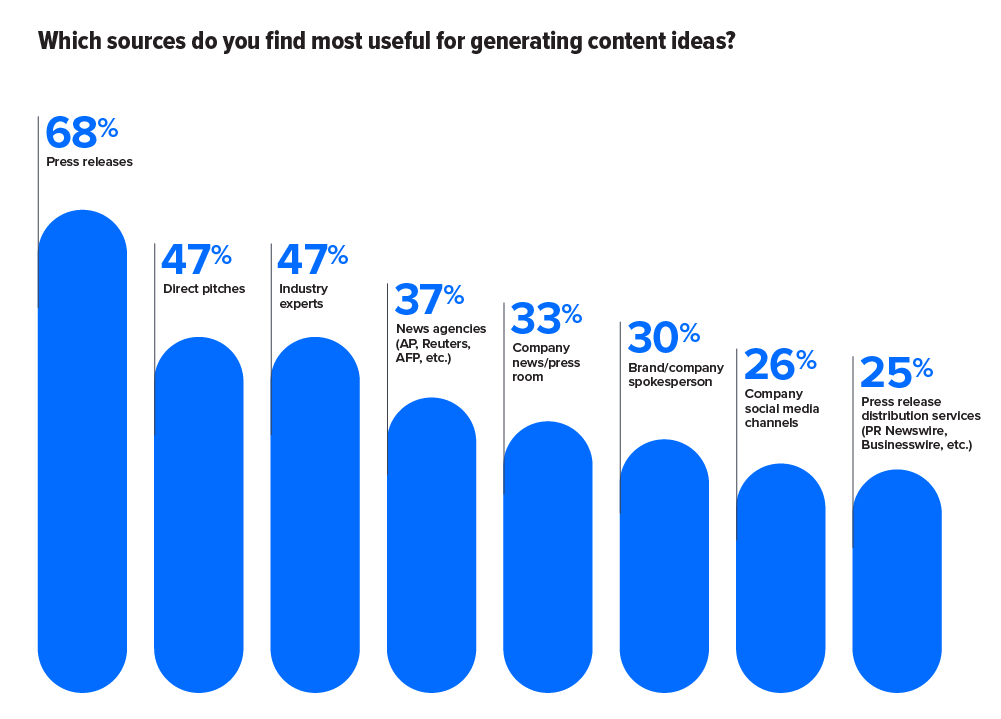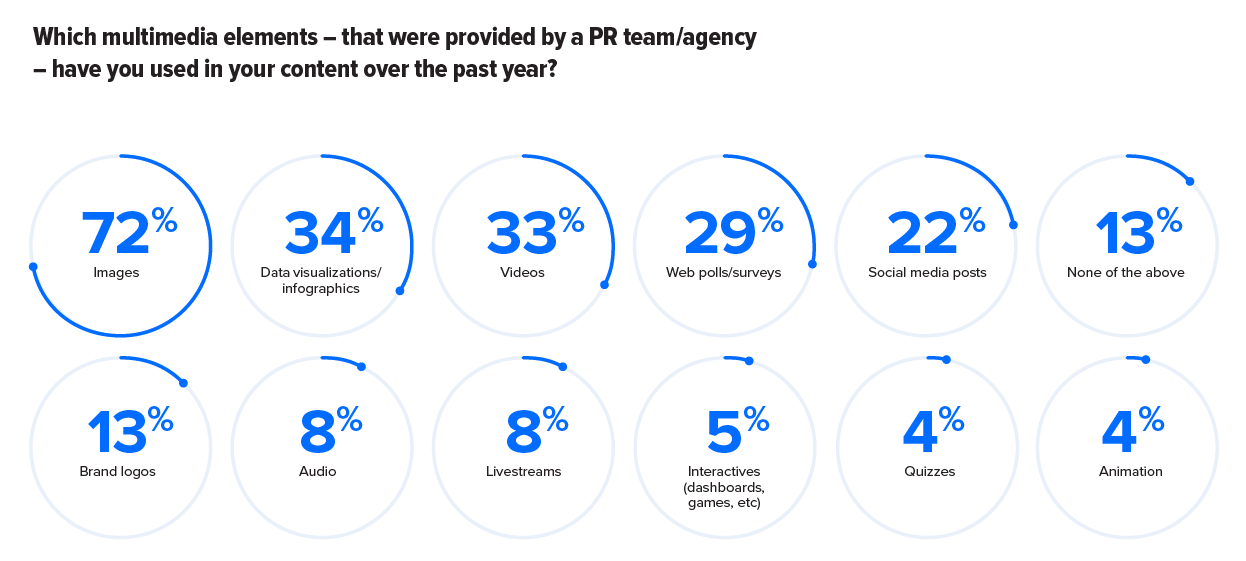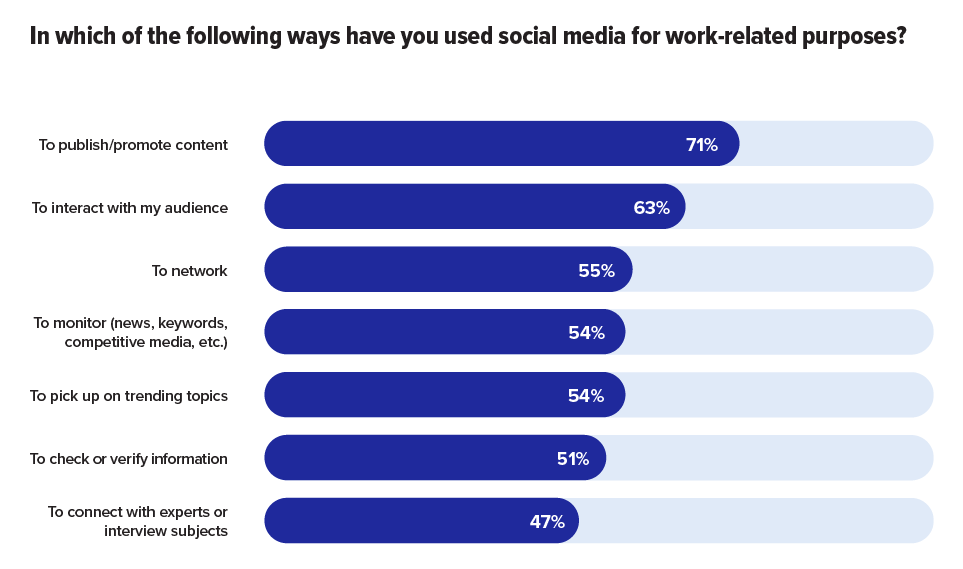Media Relations Lessons from Cision’s 2024 State of the Media Report
With more than 50,000 published books giving relationship advice and just as many memes poking fun at how we interact with one another, it’s clear that relationships aren’t easy. Strong relationships take work – and the relationship between PR professionals and journalists is no exception.
Unfortunately, it usually falls on PR professionals to do the heavy lifting in building and nurturing those relationships - but it’s not as complicated as you might think. For our 2024 State of the Media Report, we asked thousands of media professionals what PR teams can do to provide more value and be better partners. Their candid feedback offered up some of the surprisingly simple ways PR pros can build better relationships with the media (and earn more coverage) – no couples therapy required.
7 Tips for Building Better Relationships With Journalists
1. Relevance Wins When It Comes to Getting Their Attention
Journalists don't have time for irrelevant pitches. They're swamped, with half receiving over 50 pitches per week on average. Making matters worse, 3 in 4 say less than 25% of the pitches they get are relevant to what they cover. Before reaching out, do the research to learn about the journalist, the types of stories they cover, and their audience. Your pitch will garner the attention it deserves when targeted and relevant – and this goes a long way toward building those long-lasting, meaningful media relationships.
The perfect pitch is...Relevant information, sourced information, pertinent to our market/demographics.
2. Give Them What Their Audience Wants
Just like in PR, journalists feel the pressure to measure up. Especially as they struggle to keep up amid reduced resources and downsizing, capturing audience attention is more important than ever. Readership/viewership (79%) and engagement (47%) are the primary ways their success is judged. So give them what they need – unique, timely stories that'll captivate their audiences. As for where they get their story ideas, press releases and direct pitches are still their top sources, so make them count.

3. Get Graphic – The Power of Visual Storytelling
Words are powerful, but visuals help bring the story to life. Journalists are including multimedia in their reporting more than ever – making it a powerful asset for PR teams to provide. Images are by far the most popular form of multimedia (72%), with data visualizations/infographics (34%), and videos (33%) following. Not only do journalists appreciate it when PR teams provide multimedia elements with their pitches, but the right multimedia could be a deciding factor in whether your story gets covered.

4. Back It Up With Data
In a world of fake news and increasing public skepticism, building and maintaining credibility with audiences is everything – and it continues to be a major challenge for journalism. Prove yourself as a valuable partner by providing them with the facts they need to maintain that trust factor. Media professionals want original research and data on industry and market trends to bolster their reporting. After press releases, it's their number one desired deliverable from PR teams.
5. Think Social – Craft Ready-to-Share Pitches
The vast majority of journalists use social media for work-related purposes. The most common ways they’re leveraging social channels: To publish or promote content (71%); to source information (67%); and to interact with their audience (63%). Sharing short pitches with a few key facts that can quickly be turned into short-form content for web and social is a win-win: Twenty-eight percent of journalists said this makes their job easier. PR pros can give themselves an advantage by proactively providing relevant research, sources, and ready-to-share multimedia assets to save journalists’ time and reinforce the value of your partnership.

6. Be Their Go-To Source
There’s no guarantee your story will be picked up, but you can certainly help your chances by making their jobs easier. According to 68% of journalists, understanding their audience and what they find relevant is paramount. Here’s some other ways to help them (and yourself):
- Connect them with experts/spokespeople (52%)
- Provide data and key research (48%)
- Respect their deadlines (47%)
- Provide new and relevant story ideas (46%)
The fewer hoops journalists have to jump through to cover your story, the more they are likely to do so. And the more work you put in to make their lives easier, the more journalists will want to work with you in the future.
7. Avoid These Blacklist Behaviors
We’ve all had relationships that ended badly – and it’s not fun for either party. The fastest way to get blocked by a journalist: Spamming them with irrelevant pitches (77% have little tolerance for this). Also on the list:
- Providing inaccurate or unsourced information (62%)
- Pitches that sound like marketing brochures (55%)
- Following up repeatedly (48%)
- Dodging inquiries/lack of transparency, (41%)
Like any relationship, respect and trust are key to going the distance.
Bottom Line: At the end of the day, building relationships with the media takes work, but the more effort you invest in those relationships, the bigger the payoff.
For more insight into what journalists really want and need from their PR partners, read the full 2024 State of the Media Report.








